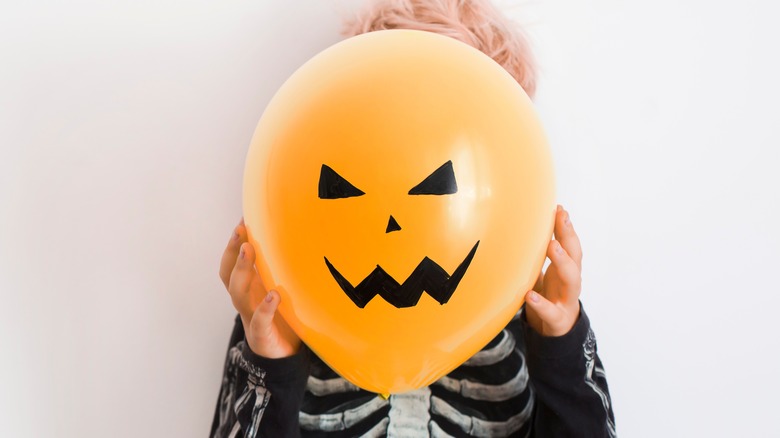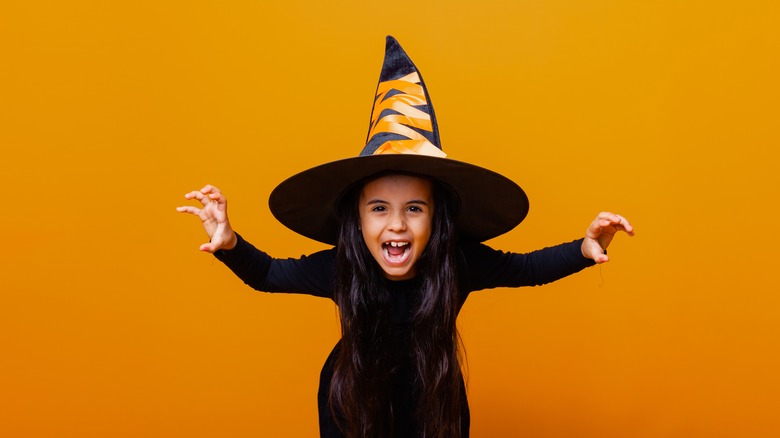Why Old Wives' Tales Caution Mothers Against Giving Birth On Halloween
Over a thousand years ago, the Celtic people began celebrating a pagan festival known as "Samhain," an event where people believed that spirits rose from the dead to travel back to the homes of their past lives (via Britannica). To defend themselves, people would wear spooky costumes and light huge bonfires to fight against the evil the spirits brought with them. However, when the Catholic Church in the 8th century moved the All Saint's Day holiday to November 1st, the same day as the Samhain festival, the two holidays began culturally merging in how they were celebrated. The night before All Saint's Day, originally known as All Hallows Eve, became the holiday of Halloween.
Given the holiday's relationship with the dead and evil in general, many tales have been told about the dangers of having a child on this very day — children who are cursed by the wickedness of having a birthday on Halloween. This tale has led researchers to challenge the idea that the timing of birth is always unpredictable and spontaneous, and there might actually be some evidence — albeit old evidence — that our subconscious plays a role in when a baby is born, according to The Guardian.
Is there such a thing as controlled birth?
A study dating back to 2011 found that fewer children are born on Halloween, on average, when compared to other days of the year. It also revealed that women may be able to impact what day their child is born. The study analyzed all births from 1996 to 2006, between the week before and the week after both Halloween and Valentine's Day, to see if this hypothesis was valid. The researchers found that women were 11.3% less likely to give birth on Halloween than on the other days studied in the research, according to The Guardian. For Valentine's Day, it was 5% more likely a child would be born on this day between the same time frame.
Scientists knew beforehand that hormones impact the timing of when someone delivers their baby, but what the researchers did discover was that thoughts and the subconscious can play a huge role when those hormones were released, and could help a woman practically "choose the date" her child is born. In other words, women who absolutely wanted no part of having a Halloween baby might physically influence their bodies on a chemical, hormonal level to avoid going into labor near or on Halloween.
The Halloween curse
As far as a Halloween "curse" goes, if your child is born on Halloween, some believe they may have an array of different powers and paranormal activity. It is believed that some children born on this day are given the power to communicate with dead spirits, given that they supposedly walk the planet on this frightful holiday. Other beliefs are that these rare children are protected from evil in general, given that they came into the world under the watch of evil spirits themselves. However, a lot of times it is believed even among these folklore tales, that it's ultimately free will that guides the child to act on good and evil (via British Institutes).
Whatever the case may be, it is obvious that Western culture and our social sphere could affect some of the most very important events in our lives, such as bringing a child into this world — whether we are aware of it or not.


